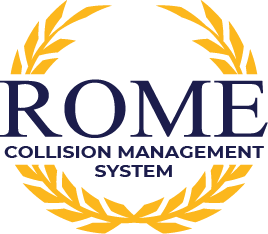In the ever-evolving landscape of automotive technology, Advanced Driver Assistance Systems (ADAS) have emerged as a game-changer for road safety. These systems, integrated into modern vehicles, encompass a range of sensors, cameras, and radars that work together to assist drivers in making safer and more informed decisions. However, to maintain their effectiveness, these sensors require periodic calibration, especially when their alignment is disturbed due to various reasons, as we’ll explore in this article.
Why ADAS Sensor Calibration is Crucial
ADAS sensor calibration is an essential maintenance task that should not be overlooked. It ensures that the sensors and cameras in your vehicle are precisely aligned and providing accurate data to the ADAS system. There are several instances when calibration becomes necessary:
1. Collision Repair, No Matter How Minor: Even a minor fender bender can affect the alignment of ADAS sensors. Since these sensors play a crucial role in features like adaptive cruise control and automatic emergency braking, any misalignment can compromise your safety. Therefore, after any collision, no matter how minor, it’s imperative to perform ADAS sensor calibration.
2. Windshield Replacement: One of the most common situations that necessitate ADAS calibration is windshield replacement. Many modern vehicles have sensors integrated into the windshield, such as rain sensors and those used for heads-up displays. Any disturbance during windshield replacement can affect the accuracy of these sensors, potentially compromising their performance.
3. Suspension Repairs: Repairs involving the suspension system can lead to changes in a vehicle’s alignment. These changes can affect the accuracy of ADAS sensors that rely on precise positioning. To ensure your ADAS functions correctly, it’s advisable to perform calibration after suspension repairs.
4. Wheel Alignment and Tire Changes: Even routine maintenance tasks like wheel alignment or changing tire sizes can trigger the need for ADAS calibration. Wheel alignment adjustments can affect the vehicle’s steering and positioning, which can, in turn, affect the accuracy of sensors responsible for lane departure warnings and other safety features.
5. Moving Cameras During Repairs: When other repairs necessitate the relocation of cameras or sensors, it’s essential to recalibrate the affected ADAS components. Failure to do so can lead to inaccuracies in the system’s readings, potentially compromising your safety on the road.
Specific Calibration Scenarios
Let’s delve deeper into some specific scenarios where ADAS calibration is required:
1.Cracked Windshield: When your vehicle’s windshield is cracked and needs replacement, it’s not just about improving visibility. It’s also about ensuring the proper functioning of ADAS features like rain sensors and heads-up displays. A correctly calibrated windshield ensures these systems work as intended.
2. Sideswiped Vehicle: If your vehicle is sideswiped in an accident, the impact can affect the alignment of mirrors and lane departure warning sensors. Calibration is necessary to ensure that these safety features continue to operate accurately.
Conclusion
ADAS sensor calibration is not just a technicality; it’s a crucial aspect of ensuring your vehicle’s safety and performance. Whether it’s a minor collision, windshield replacement, suspension repairs, wheel alignment, or any other situation that disturbs sensor alignment, taking the time to recalibrate your ADAS components is a responsible choice.
By investing in ADAS calibration, you’re not only protecting yourself and your passengers but also contributing to safer roads for everyone. It’s a small price to pay for the peace of mind that comes with knowing your vehicle’s advanced safety systems are functioning optimally.
So, remember, the next time your vehicle undergoes any of the situations mentioned above, don’t skip the ADAS calibration – it’s a simple yet effective way to ensure that your vehicle’s advanced safety features continue to provide you with the protection you deserve on the road. ROME Collision Management is an authorized distributor of VSSTA ADAS Calibration equipment; offering the only profit sharing model in the industry. To learn more about VSSTA Calibration tools visit : ROME VSSTA Scanners
